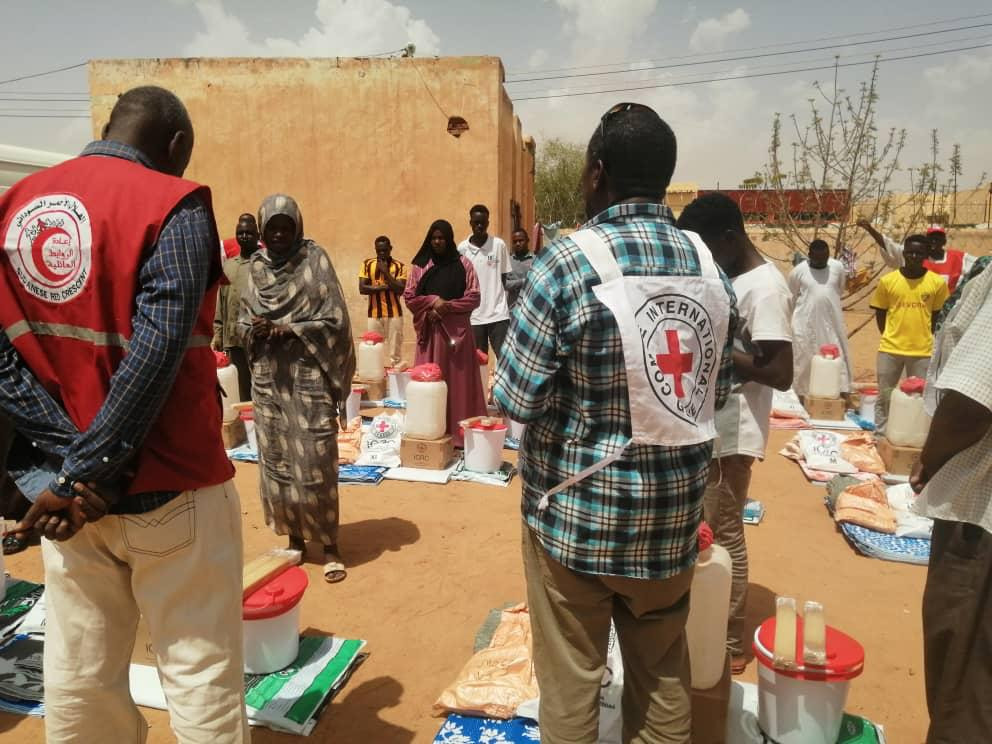
Sudan: Essential services at breaking point after two months of fighting

Hundreds of thousands of civilians in Khartoum have spent many weeks without clean water and electricity, having to walk long distances, often putting their lives at risk, to reach these essential services. The skyrocketing prices and shortages of fuel used for generators have made the situation worse.
“Sudanese civilians, those who left their homes and those who stayed, are enduring enormous hardship without access to the essentials, like water, electricity and healthcare,” says Jean-Christophe Sandoz, the head of the delegation of the International Committee of the Red Cross (ICRC) in Sudan. “Civilian infrastructure providing essential services, and personnel who operate, maintain and repair it are protected by international humanitarian law.”
The onset of the rainy season has raised the fear of outbreaks of waterborne diseases. Garbage has not been collected in many urban neighborhoods for weeks, and dead bodies still lie in the open in some hard-to-reach areas. At the same time, many residents have had no choice but to use unsafe drinking water from the Nile or other sources.
Despite the enormous efforts of Sudanese doctors and nurses, many medical facilities had to close their doors. In Khartoum, we estimate that only 20% of facilities still function. The state of healthcare provision is also critical in many areas of Darfur. The healthcare system finds itself under an enormous strain not only to treat the large number of wounded but also to provide routine services to the population.
Since the beginning of the fighting on April 15 the ICRC has:
- Distributed surgical supplies sufficient to treat over a thousand of wounded people to 10 hospitals in Khartoum and the surrounding areas, as well as to 2 hospitals in Darfur, and 3 hospitals in other regions of Sudan.
- Donated 33 first-aid bags to the Sudanese Red Crescent Khartoum Branch, as well as dressing and suture sets, sufficient to treat nearly 500 people with light wounds.
- Donated 9 tons of chlorine to the water authorities in Khartoum to provide 1,000,000 cubic meters of clean water to cover the needs of 1,000,000 people for 60 days.
- Donated over 100 body bags, plastic sheets, and personal protective equipment (gloves, masks, gowns, overalls, sanitizer, and fuel) to the Sudanese Red Crescent Society, so their volunteers can continue recovering, burying, and preserving the identity of mortal remains. By mid-June, the volunteers have collected 140 dead bodies, and continue this essential and extremely difficult work.
- Together with the Sudanese Red Crescent, provided hygiene kits to more than 400 displaced families in Wad Madani, and essential household items to 170 families in Al Fashir.
- Supported Sudanese Red Crescent volunteers to facilitate over 2,000 phone calls between separated family members in Al Jazeera, Kassala, Northern State, Gedaref and East Darfur regions.
- Evacuated some 300 children and 70 caretakers from Maygoma Orphanage in Khartoum to Wad Madani.
Media contacts:
Alyona Synenko, ICRC Nairobi, tel: +254 716 897 265, asynenko@icrc.org
